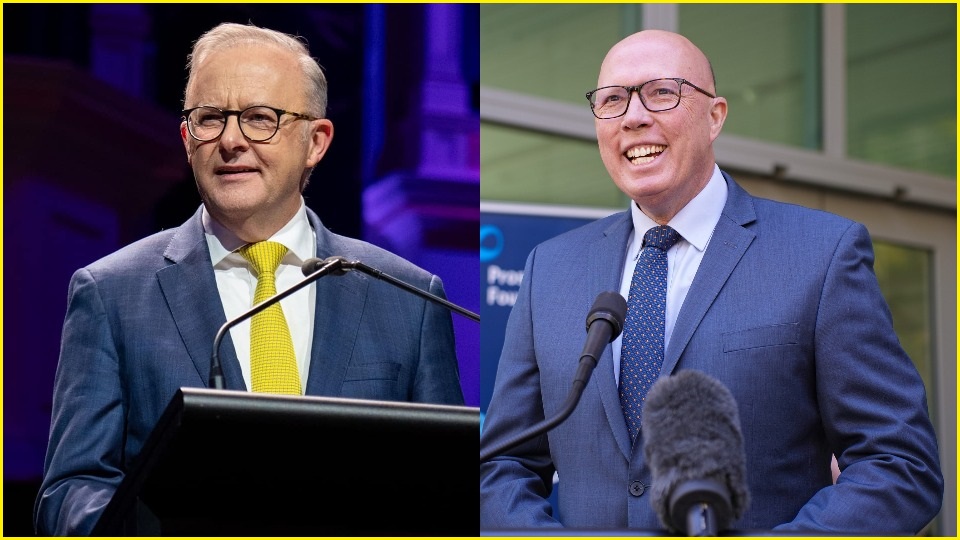The Coalition has pledged to scrap a popular discount scheme for the purchase of electric vehicles if it wins May’s federal election, just two days after Opposition Leader Peter Dutton said there were no plans to do so.
EVs have emerged as a significant issue in the election campaign, mostly centred on jostling around existing policies rather than any announcements of new initiatives.
There are now two clear points of difference between the two major parties when it comes to EVs, with the Coalition also promising to scrap fines associated with a recently launched vehicle emissions standard.
Another policy backflip
Under the current regime, EVs valued below the luxury car tax threshold (currently $91,387) are exempt from Fringe Benefits Tax if they are purchased through a salary sacrificing program, providing a discount of about $4,700 for a $50,000 vehicle.
The scheme initially applied to battery electric, hydrogen fuel cell, and plug-in hybrid vehicles, but plug-in hybrids were phased out of the system in April in a deal with the Greens and independent Senator David Pocock.
Earlier this week it appeared there was some bipartisanship around EV policy, when Dutton stated there were no “proposals to change those settings” around Fringe Benefits Tax exemptions.
This was despite the Coalition previously voting against the exemptions and a series of key figures criticising it.
In March, Shadow Treasurer Angus Taylor said the exemption was “bad policy dressed up as tax reform”, while Nationals Senator Bridget McKenzie asked, “What has to be cut from the federal budget to pay for Labor’s pursuit of an EV-only future?”
But just two days after Dutton said he would not change the scheme, a Liberal Party media release on Wednesday signalled a Coalition government would repeal “Labor’s taxpayer-funded and badly designed electric car subsidies” as part of its efforts to end “wasteful spending”.
The Liberals said this would save about $3 billion over the forward estimates and $23 billion over the medium term.

The current Fringe Benefits Tax exemption provides a discount of about $4,700 for a $50,000 EV. Image: Shutterstock
Taylor told ABC News this was not a policy U-turn from the Coalition and Dutton had misheard a question about the EV tax exemption.
Before the policy switch, the Electric Vehicle Council (EVC) had welcomed bipartisan support for the key EV policy.
“Maintaining this commitment means more Australians can confidently plan for an electric future knowing the next government will support the decision to go electric,” EVC CEO Julie Delvecchio said earlier this week.
Dutton’s backtrack appeared to be the second major policy backflip of his campaign, after he changed his mind on forcing public servants back to the office.
Fuel emissions standard in question
A war of words also erupted earlier in the election campaign over the New Vehicle Efficiency Standard (NVES), which aims to encourage the sale of fuel-efficient vehicles, including EVs, in Australia.
The NVES passed parliament in early 2024 and sets a cap on the average emissions per kilometre for new cars sold by each manufacturer in Australia, with the goal of increasing the number of EVs on the market and reducing petrol costs for drivers.
If an automaker exceeds this target they will face a fine of $100 for every gram per kilometre of CO2, for every vehicle exceeding the cap.
Dutton has been critical of the standard, labelling it a “tax on utes and SUVs”, and has vowed to get rid of the fines and penalties in the scheme.
“This is a tax on families who need a reliable car and small businesses trying to grow,” Dutton said earlier this month.
“A Coalition government will scrap this tax so Australians can keep more of their hard-earned money when purchasing a new car,” he said.

Prime Minister Anthony Albanese (left) and Opposition Leader Peter Dutton (right) will go to a federal election on 3 May. Images: Facebook
But Dutton has since promised to retain the standard but scrap the fines, saying he wants “cleaner, cheaper cars” but that “unfair penalties” are not the answer.
This position was labelled “nonsensical” by Prime Minister Anthony Albanese.
“I find it extraordinary that Peter Dutton, who says he cares about the price of fuel, doesn’t want people to have more fuel-efficient cars, which reduce the cost of filling up their car,” he said.
Climate Change and Energy Minister Chris Bowen said the scheme would not work at all without the threat of fines.
“Let’s be clear on what these standards do — they bring us into line with the rest of the world, so that Australians can have more cars that are cheaper to run,” Bowen said.
“Turning standards into a toothless tiger, as the Liberals propose by abolishing enforcement of NVES, is worse than a voluntary standard.”










